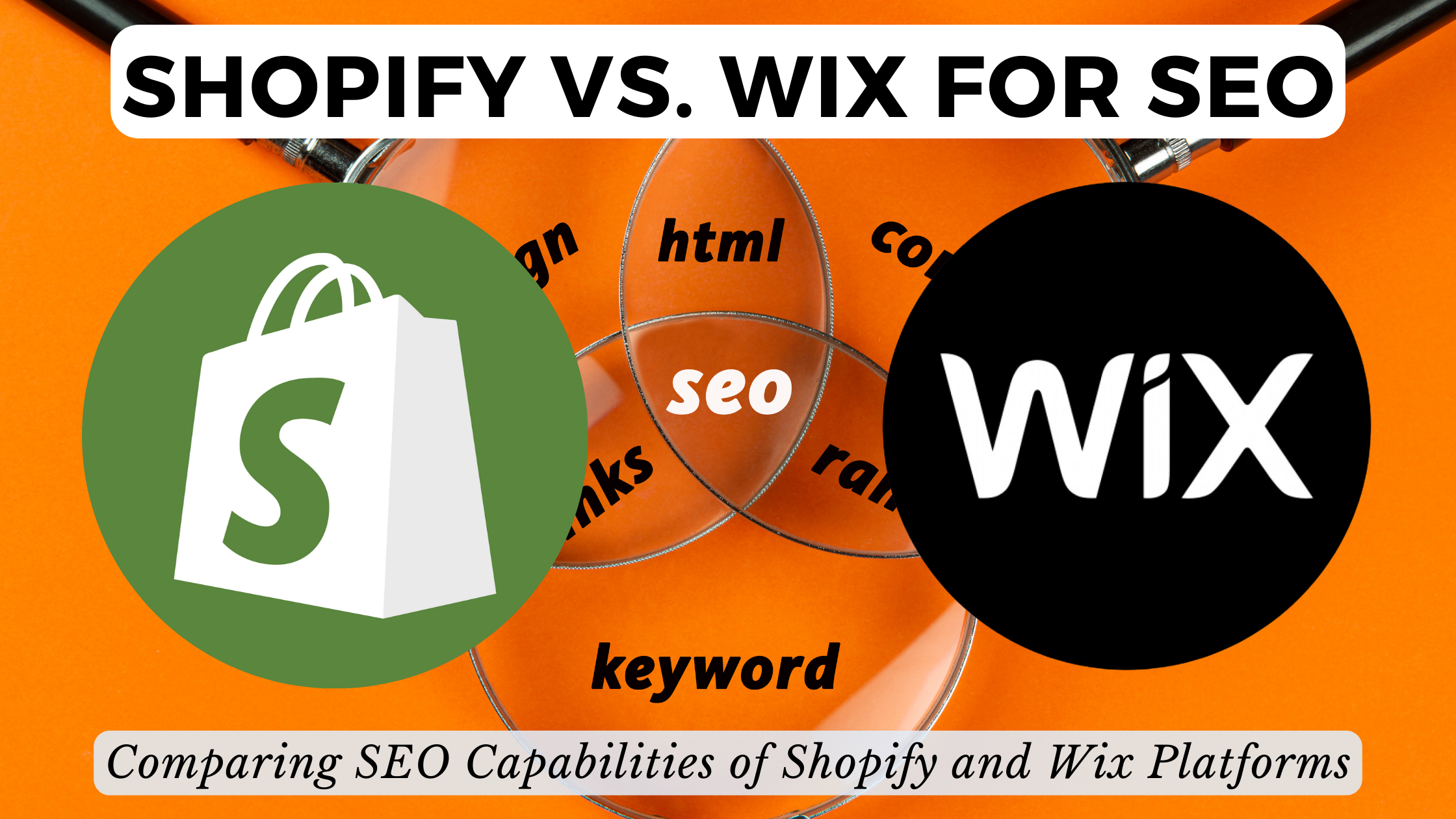Shopify vs. Wix for SEO: Comparing SEO Capabilities of Shopify and Wix Platforms


Shopify vs. Wix for SEO: Comparing SEO Capabilities
When it comes to establishing a powerful online presence, the choice of an e-commerce platform significantly impacts a website’s search engine optimization (SEO) performance. Shopify and Wix stand out as popular choices, each offering unique features. In this article, we’ll delve into a comparison of their SEO capabilities, helping you make an informed decision.
Shopify’s SEO Strengths
1. Robust E-commerce SEO Tools:
Shopify is renowned for its extensive SEO toolkit. It provides customizable title tags, meta descriptions, and URLs, allowing users to optimize each page for search engines effectively.
2. Mobile Optimization:
Given the increasing use of mobile devices, Shopify ensures mobile responsiveness, contributing to better SEO rankings. Mobile-friendly websites receive a boost in search engine algorithms.
3. Fast Loading Speeds:
Shopify’s infrastructure is designed for speed. Fast-loading websites improve user experience and are favored by search engines, positively impacting SEO rankings.
4. Built-in SSL Certificates:
Security is a vital aspect of SEO. Shopify includes SSL certificates, ensuring a secure connection. Search engines tend to prioritize secure websites, enhancing SEO performance.
5. App Integrations:
With a rich app ecosystem, Shopify allows users to integrate additional SEO tools seamlessly. This flexibility empowers users to enhance their SEO strategy as needed.
Wix’s SEO Advantages
1. Intuitive SEO Wiz:
Wix simplifies SEO for users with its SEO Wiz tool. It provides a step-by-step guide for optimizing each page, making it an excellent choice for beginners.
2. Customizable Meta Tags:
Similar to Shopify, Wix enables users to customize meta tags, titles, and descriptions. This level of customization contributes to improved visibility on search engine results pages (SERPs).
3. Structured Data:
Wix supports structured data, aiding search engines in understanding the content on a website. This can result in rich snippets, enhancing the appearance of a site on SERPs.
4. Image Optimization:
Wix includes features for image optimization, a critical factor in SEO. Properly optimized images contribute to faster loading times and better rankings.
5. Integrated SEO Apps:
Wix’s App Market offers various SEO-related apps, allowing users to extend their SEO capabilities. This adaptability is beneficial for users looking to refine their strategy.
Comparing the Two
Both Shopify and Wix are strong contenders, but the choice depends on specific needs. Shopify excels in providing a comprehensive e-commerce SEO infrastructure, while Wix is user-friendly with an emphasis on customization.
In conclusion, selecting between Shopify and Wix depends on your priorities – whether it’s a robust e-commerce platform or a user-friendly, customizable website. Evaluating your SEO strategy requirements is crucial.
As you navigate the diverse landscape of e-commerce and SEO, Subscribed.FYI emerges as a valuable resource. Here, you can explore, compare, and manage your SaaS stack efficiently. The platform’s mission aligns with the challenges faced by freelancers, agencies, and teams in accessing centralized information about SaaS tools.
Subscribed.FYI Deals further enhances your experience by unlocking member-only deals on various SaaS tools. Sign up for free today to access savings on your favorite tools, totaling up to $100,000+ per year.
Make informed decisions about your SaaS tools, optimize your workflows, and elevate your online presence with Subscribed.FYI.
Relevant Links:








